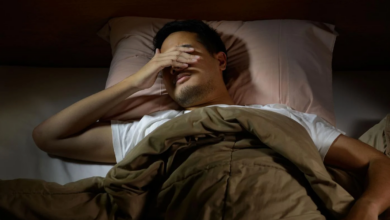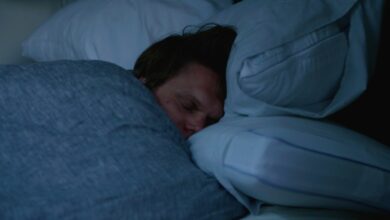
Sleeping longer one night corresponds with an increase in sexual desire and odds of intercourse the following day for women, according to a new survey-based study.
“Aspects of sexual functioning, like desire and arousal, are influenced by many areas of our lives, such as mood, medical health, fatigue, stress and relationship factors,” said lead author David A. Kalmbach of the University of Michigan Medical School in Ann Arbor.
Kalmbach and his coauthors studied 171 female college students – who were not taking antidepressants, which can influence sexual function – for a two-week period.
About half of the women said they were in an intimate relationship, and more than half reported having at least one current sexual partner.
First, the women completed questionnaires assessing depression, anxiety and “distress” related to sex. For the next two weeks, they completed online questionnaires first thing in the morning about their quality and quantity of sleep during the night and their sexual activity over the previous 24 hours.
The participants reported their experience of sexual desire, arousal and orgasm, instances of partnered sex or masturbation and details of their menstrual cycle.
Based on the results published in the Journal of Sexual Medicine, the women reported masturbating on an average of one to two days during the 14-day survey period and engaging in partnered sex an average of three to four days.
They slept for an average of seven hours and 22 minutes per night.
Sexual desire was higher for women taking oral contraceptives and dipped during menstruation, the authors found.
When all these factors were accounted for, longer sleep duration predicted higher sexual desire the following day.
Sleep length and quality did not appear to be related to subjective sexual arousal, however, and sleeping longer was linked to poorer vaginal lubrication, a surprise to the authors.
“Surprisingly, single night sleep interruptions in an uncontinuous fashion were found to increase genital arousal the following day,” said Dr. Hikmet Köseoğlu, a urologist at Baskent University in Ankara, Turkey, who was not part of the new study.
This will need to be confirmed by other studies, he told Reuters Health by email.
Shorter sleep length may lead to poorer desire and arousal, but that doesn’t mean the relationship can’t go in the other direction as well, Kalmbach said told Reuters Health by email.
“Some researchers have suggested that sleep-related hormonal changes can affect sexual response,” he said. “There could be some other neurobiological basis to this relationship that we have yet to identify.”
One critical issue left out of the study is time, said Dr. Louis F. Fabre of Fabre-Kramer Pharmaceuticals in Houston, Texas, who was not part of the new study.
“If the woman has more time to sleep does she have more time for sex too?” Fabre asked.
“I think getting less sleep because she was out on a date might produce different results than getting less sleep because she studied too late,” he said.
Fabre has published on associations between depression and sexual function in men.
The findings may have been similar for men as well, Kalmbach said.
“There is no optimal amount of sleep for men or women,” he said. “Many people need somewhere between seven and nine hours, but there are plenty of people who do fine on less than seven, or more than nine.”
It’s hard to say whether women should change anything they are doing based on this study, he said.
“However, good quality and sufficient sleep has been shown to be important for mood, health, and just about every other aspect of our daily lives,” he said. “It's important to allow yourself sufficient opportunity to obtain adequate sleep.”



